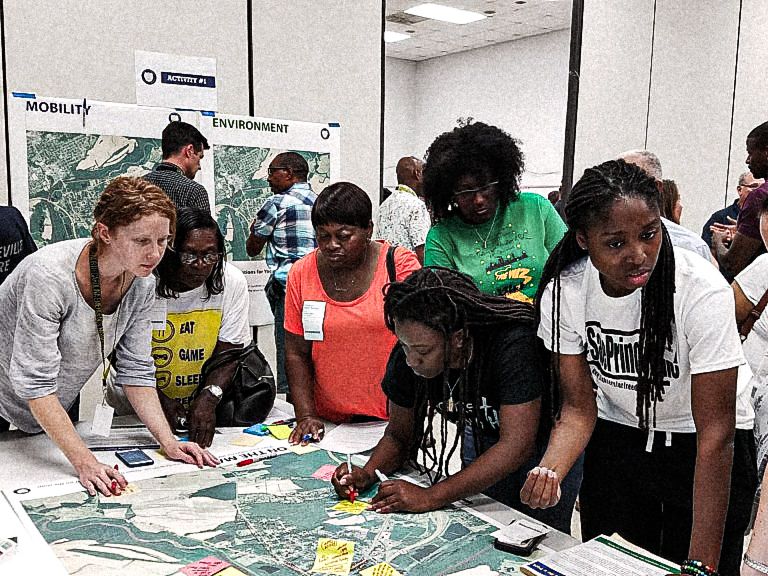HURRICANE MATTHEW DISASTER RECOVERY RESILIENCE INITIATIVE
Columbus County, NC, USA
University of North Carolina, North Carolina State University
Hurricane Matthew was a category five hurricane that formed in the Atlantic Ocean in September 2016. The Hurricane Matthew Disaster Recovery and Resilience Initiative was a program that focused on six focus communities that were affected by the hurricane. The project was led by the University of North Carolina, including both faculty and students to address the community and state needs to recover from the hurricane, and funded by the state of North Carolina, the Department of Homeland Security Science and Technology Directorate and the Flood Apex program. Over the course of 18 months the project produced Homeplace booklets on each community including design standards to rebuild or retrofit homes. These freely accessible booklets were the product of North Carolina State University’s Design Lab through studio courses. Additionally, the initiative produced reports for downtown flooding revitalization projects, land suitability analyses and market analyses. The project worked to address vulnerabilities that FEMA and state governments normally do not take into account by increasing resilience by building local capacities, facilitating collaboration between the universities, local and state governments and residents. The initiative highlighted community engagement in identifying local vernacular housing types, houses that might be salvaged, and homes that would need to be rebuilt elsewhere. In addition to architectural proposals, the initiative included planning for a greenway design that linked to existing open spaces and communities, with connections made to community amenities, including disaster memorials. As part of the disaster recovery, buyouts were planned in each community, and the initiative emphasized the challenges associated with losing a tax base when managed retreat occurs in small communities.
2017
52 acres
0 - 171 feet above sea level
52 acres
0 - 171 feet above sea level

tags: freshwater flooding, waterway restoration, managed retreat, mobility, adaptation, anonymous adaptation, resilience, remain, retreat, community, risk reduction, government-driven, institutional, scenario plan, design project, increased storm frequency, flooding, climate gentrification, displacement, North America, Nearctic, Temperate Forest
References:
Fox, A. & Hill, D. Decimated by Hurricanes, Rural America Needs Our Help, The New York Times, 2018: 10.
Fox, A. & Hill, D. “Re-imagining Community Resilience: The Coastal Dynamics Design Lab.” Carolina Planning Journal, Volume 42 (2017): 110-117.
Coastal Dynamics Design Lab. Greater Princeville: Design Strategies to Restore and Celebrate America’s Oldest Black Town. NC State University College of Design: Raleigh, NC, 2018.
Naylor, Lindsey, Virginia Fall and Andrew Fox. 'The Power of Place in Disaster Recovery: Heritage-based practice in post-Matthew Princeville, North Carolina." Parks Stewardship Forum 36, no. 1 (2020): 128-136.
Links:
https://issuu.com/stephanieheimstead/docs/hmdrri_sevensprings_final
https://coastalresiliencecenter.unc.edu/files/2018/09/HMDRRI-Org-Chart-v12-9-5-17.jpg
https://www.coastaldynamicsdesignlab.com/publications
https://issuu.com/afox_1/docs/cddl_coastal_resilience_single_page